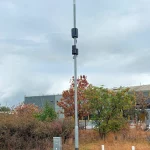BPI Calls for Quick and Easy Blocking of Piracy Websites by UK ISPs
The British Phonographic Industry (BPI), which represents the recorded music sector, has called for the Government’s forthcoming ‘Internet Safety Strategy‘ to add new measures that would make it easier for copyright holders to get websites that facilitate internet piracy blocked or completely removed.
At present major broadband ISPs like BT, Virgin Media, Sky Broadband and TalkTalk can be forced, via a court order, to block websites if they are found to facilitate internet copyright infringement (piracy), which is supported via Section 97A of the Copyright, Designs and Patents Act. So far well over 100 piracy sites have been blocked as a result of this but the process can be expensive.
Back in 2014 Wiggin LLP revealed that an unopposed application tends to cost around £14,000 per site. On top of that the additional admin required to maintain the block and keep ISPs up-to-date with related IP address changes and new URLs (Proxy Servers) comes to around £3,600 per site per year.
Advertisement
Meanwhile ISPs also incur on-going costs as part of their work to introduce the blocks. EE previously suggested that a “near four figure sum” was involved with each update, while Sky Broadband hinted at a “mid three figure sum” and then roughly half that for future updates. Similarly Virgin Media pegged their own annual costs at a “low five figure sum“.
Naturally Rights Holders would like nothing better than to cut out the court process and shift the cost burden elsewhere, which partly explains why the BPI has this week proposed the following measures for the government’s new strategy.
BPI Proposes that Government Should:
* Legislate for a new “duty of care” for online intermediaries and platforms, requiring them to take effective action to ensure their services are not abused by businesses encouraging consumers to access content illegally;
* Establish a new fast-track process for blocking illegal sites;
* Place a requirement on platforms to block repeat illegal posting of the same content and to remove the accounts of repeat infringers;
* Bring in penalties for online operators that do not, as required by law, provide transparent contact and ownership information to consumers and businesses.
The BPI notes that recorded music revenues rose by 10.6% in 2017, the biggest rise since 1995 with trade revenues growing to £839m, but they also claim that “growth is constrained by the constant need to identify and address illegal sources of music online” (e.g. the BPI alone has placed 63 injunctions against piracy sites).
Geoff Taylor, CEO of the BPI, said:
“The BPI welcomes the Government’s decision to bring forward a Bill to address online harm. This is a vital opportunity to protect consumers and boost the UK’s music and creative industries. The BPI has long pressed for internet intermediaries and online platforms to take responsibility for the content that they promote to users.
Government should now take the power in legislation to require online giants to take effective, proactive measures to clean illegal content from their sites and services. This will keep fans away from dodgy sites full of harmful content and prevent criminals from undermining creative businesses that create UK jobs.”
All of this is despite the fact that the new safety strategy is more focused on reducing online adult (porn), cyberbullying / trolling and terrorism content than tackling copyright. In fact the Government’s official response to last year’s green paper only mentioned the words “copyright” and “piracy” very briefly among the 75 pages.
Advertisement
However the strategy did more broadly identify the need for steps to detect and remove illegal content, improving the effectiveness of notice and takedown arrangements, reducing incentives for illegal sites to engage in infringement online and reducing the burdens on rights holders in relation to protecting their content.
We should get a better idea of how far the government will take this by the end of 2018, when a new white paper will be published. Meanwhile those who seek to access such content can easily circumvent any blocks imposed by broadband providers.
Mark is a professional technology writer, IT consultant and computer engineer from Dorset (England), he also founded ISPreview in 1999 and enjoys analysing the latest telecoms and broadband developments. Find me on X (Twitter), Mastodon, Facebook, BlueSky, Threads.net and Linkedin.
« ISP BT Launches New Converged Plus Fibre Broadband and 4G Plans
















































Comments are closed